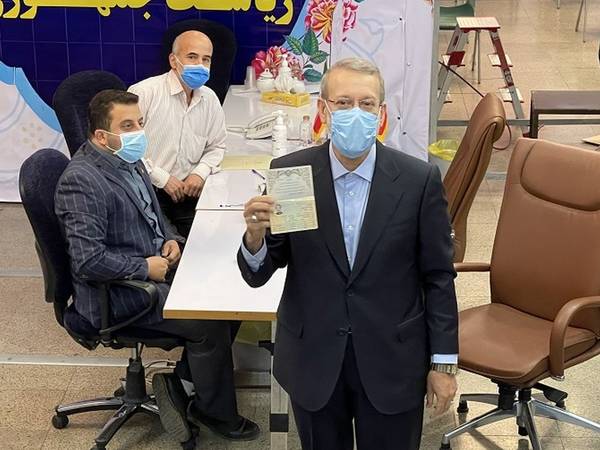Some of Iran's high-profile politicians have spoken about the upcoming parliamentary elections in March 2024, albeit with a tone marked by bitterness.
Former parliamentary Speaker Ali Larijani made it clear in an interview with centrist website Entekhab that he is not going to run for parliament (Majles) in March. However, he said that he will explain his reasons for not taking part in the election at a later date.
Larijani's aides had said earlier that although he is not going to run himself, he will present a list of likeminded candidates including his brother-in-law, outspoken moderate conservative former lawmaker Ali Motahari who at times has even criticized Supreme Leader Ali Khamenei's policies.
Larijani who still harbors hard feelings about his disqualification in the 2021 Presidential election, criticized the current ultraconservative-dominated parliament and teasingly called its hardliner members "wheeling-dealing revolutionaries."
"They claim to be revolutionaries and they want to win all the positions in the government," Larijani said. He added that this group's presence in the Iranian politics dates back to the early days after the 1979 Islamic revolution. "They have always tried to create a bipolar situation and attempted to kick their political rivals out of the scene," he said.
Larijani once again talked about his idea of political purification adding that this is a policy hardliners are advancing in order to ensure that others are excluded political competition and participation.
This purging, he said, will belittle the revolution and will inevitably lead to the disintegration and fragmentation of the nation.
However, Larijani charged that hardliners are furthering the idea of political purification to secure their personal and factional interests. They do not believe that positions of power should be held by individuals who have the right talent and capability for those posts.
Meanwhile, Khabar Online reported last week that Former President Mahmoud Ahmadinejad is also going to present a list of candidates for the Majles elections. However, according to the website, although Ahmadinejad and his aides will actively take part in presenting the list, their main objective is to secure a foothold for the 2025 Presidential election, when Ahmadinejad is hoping to have a political comeback.
For the Majles, Khabar Online wrote that Ahmadinejad's team may independently present a list of candidates for all the constituencies although they might decide at one point to come up with a shared list of candidates with one of the major conservative camps.
Like Larijani, Ahmadinejad has also tasted the bitter disqualification by Khamenei's Guardian Council in previous presidential elections. If they are ever allowed to run again, that would mean that Khamenei is desperate to have a high-turnout election.
In another development, conservative heavyweight Mohammad Reza Bahonar, who has repeatedly spoken with the media, warning about a low turnout, has once again lashed out at current lawmakers for their inefficiency, which he said has disappointed Iranian voters.
Bahonar, who like Larijani and Ahmadinejad, is a member of the expediency Council, said in an interview with Khabar Online that Khamenei usually issued an occasional warning about previous parliaments' performance, but he has warned the current parliament several times about various legislative matters.
Bahonar said that he has told Speaker Mohammad Bagher Ghalibaf that one of the main weaknesses of the current Majles is that it does not have a powerful minority faction. The lawmakers think they have no rivals and challenges ahead of them, and that they can do whatever they like.
Nonetheless, the Majles and the government are in a state of denial about almost everything. Vice President Mohammad Hosseini told the press on Friday that the previous government should be blamed for the low turnouts in recent elections, without presenting any evidence.
